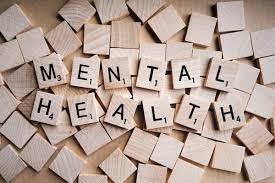Introduction
Mental health is a critical aspect of overall well-being, yet it’s often misunderstood, stigmatized, or overlooked. Mental health first aid is an approach designed to bridge this gap. Similar to physical first aid, it provides a framework for recognizing, understanding, and responding to mental health challenges. In this article, we’ll delve into what mental health first aid is, its significance, and how it empowers individuals to support mental well-being effectively.
Understanding Mental Health First Aid
Mental health first aid is a training program and a set of tools and guidelines that aim to equip individuals with the knowledge and skills necessary to provide initial assistance to someone experiencing a mental health crisis, developing a mental health problem, or in the midst of a worsening condition.
This concept is not about making individuals into mental health professionals but about teaching them to recognize signs of distress or mental health issues and respond with empathy and guidance. It promotes early intervention, de-stigmatization, and connecting individuals to appropriate professional help.
Key Components of Mental Health First Aid
- Recognizing the Signs: Mental health first aid begins with teaching participants how to recognize the signs and symptoms of various mental health issues. These can include depression, anxiety, psychosis, eating disorders, and substance abuse.
- Providing Initial Help: Once the signs are recognized, the program instructs individuals on how to provide initial support to the person in need. This might include active listening, offering reassurance, or helping them find resources.
- Encouraging Professional Help: The ultimate goal of mental health first aid is to guide the affected individual toward professional help. The training emphasizes the importance of seeking support from qualified mental health professionals, as they are trained to diagnose and treat mental health conditions.
The Significance of Mental Health First Aid
- Early Intervention: Similar to physical health, early intervention in mental health can lead to better outcomes. Recognizing signs of distress or mental health challenges and responding promptly can prevent the issue from worsening.
- Reducing Stigma: Mental health first aid programs help reduce the stigma associated with mental health issues. By educating the public and providing tools to support individuals, it encourages people to seek help without fear of judgment.
- Promoting Empathy and Understanding: When individuals are trained in mental health first aid, it fosters a sense of empathy and understanding within the community. People become more attuned to the challenges faced by those with mental health issues.
- Preventing Crisis: With the knowledge and skills gained through mental health first aid, individuals can prevent crises. They can intervene before situations become life-threatening, thereby saving lives.
How to Provide Mental Health First Aid
- Educate Yourself: The first step is to educate yourself about mental health. Take a mental health first aid course, which is often available in many communities and online. Attend workshops, read books, and explore resources on the subject.
- Listen Actively and Be Nonjudgmental: When someone opens up about their mental health, listen attentively and without judgment. Allow them to express themselves without offering solutions or advice unless requested.
- Offer Support: Let the person know that you care and are there to support them. Simple gestures like checking in on them or helping them find professional help can make a significant difference.
- Know Your Limits: Recognize that mental health first aid does not replace professional treatment. Encourage the person to seek help from a qualified mental health professional if needed.
- Promote Self-Care: Encourage self-care and stress reduction techniques, such as regular exercise, a balanced diet, and sufficient sleep.
Conclusion
Mental health first aid is a critical skill that empowers individuals to recognize and respond to mental health challenges effectively. By promoting early intervention, reducing stigma, and fostering a supportive community, mental health first aid contributes to better mental well-being for all. As society becomes more aware of the importance of mental health, these skills become increasingly relevant and essential in our daily lives, ultimately creating a more compassionate and empathetic world.
Check out CBAT for more information.





